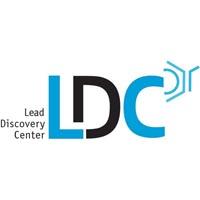| |
Newsroom >
Science and Research
>
Science and Research
>
LDC and HZI enter partnership for the discovery of new drugs against multi-resistant bacteria
LDC and HZI enter partnership for the discovery of new drugs against multi-resistant bacteria
The Lead Discovery Center GmbH (LDC) and the Helmholtz Centre for Infection Research (HZI) will be working in close cooperation to identify and optimize new drug candidates against methicillin-resistant Staphylococcus aureus (MRSA).
Dortmund,
Westphalia,
Germany
(sardnews.org)
01/04/2015
 The Lead Discovery Center GmbH (LDC) and the Helmholtz Centre for Infection Research (HZI) will be working in close cooperation to identify and optimize new drug candidates against methicillin-resistant Staphylococcus aureus (MRSA).
The Lead Discovery Center GmbH (LDC) and the Helmholtz Centre for Infection Research (HZI) will be working in close cooperation to identify and optimize new drug candidates against methicillin-resistant Staphylococcus aureus (MRSA).

MRSA are resistant to several traditional broad-spectrum antibiotics and therefore constitute a serious threat worldwide, particularly in hospitals and care homes for the elderly. They can cause serious illnesses, especially in patients with weakened immune systems, resulting in long periods of hospitalization, and in some cases, death. Based on data gathered by the German national hospital infection surveillance system (KISS), experts estimate the number of MRSA hospital infections to be approximately 14,000 per annum in Germany alone. Up to 2,000 patients die as a result of these infections each year.
The LDC and the HZI are pooling their expertise to advance a new approach to combating MRSA developed at the HZI. Their goal is to develop a drug that effectively blocks the establishment of an infection without actually killing the bacteria. 'This strategy has two important advantages over traditional antibiotics,' explains Prof. Mark Brönstrup, Head of Chemical Biology at the HZI. 'First, we avoid further selective pressure that would inevitably lead to the development of new drug resistance. Secondly, the drug would be better tolerated, as it wouldn't affect the patient's normal bacterial flora.'
The addressed therapeutic target has already been validated at the HZI in previous studies. A drug aimed at this protein has the potential to inhibit a central infection mechanism of S. aureus. In the first phase of the project, the LDC will screen their own substance library, together with the library supplied by the HZI, for compounds that selectively block the target structure. These hit compounds will be characterized in terms of their potency, selectivity and pharmacological properties, and then further optimized by the LDC in the second stage of the project. In parallel, the HZI will test the efficacy of optimized compounds against MRSA in a battery of biological model systems.
'There is great potential in this cooperation,' comments Dr. Bert Klebl, CEO of the LDC. 'By pooling our expertise, experience and substance libraries we really have an excellent chance of identifying drug candidates, so-called 'leads', that are highly attractive to global pharma partners and that can be transferred directly to pharmaceutical drug development. Together, we can make a significant contribution in the fight against resistant bacteria.' This is the second cooperation project between the LDC and a Helmholtz Centre. The first was launched at the end of last year in the field of oncology. Both projects receive financial support from the Helmholtz Validation Fund. The HZI is providing additional funding for the current project.
About the LDC
The Lead Discovery Center (LDC) is a translational incubator for innovative approaches in the field of small molecule drug discovery. Its mission is to capitalize on the potential of excellent basic research for the discovery of new therapies for diseases with high medical need.
The LDC takes on promising early-stage projects from academia and transforms them into innovative pharmaceutical leads that reach initial proof-of-concept in animals. In close collaboration with high-profile partners from academia and industry, the LDC is building a strong and growing portfolio of small molecule leads with exceptional medical and commercial potential. The LDC sustains a preferred partnership with the Max Planck Society and has formed alliances with AstraZeneca, Bayer, Merck Serono and Daiichi Sankyo as well as leading academic drug discovery centers around the globe.
Further information at: www.lead-discovery.de
About the HZI
At the Helmholtz Centre for Infection Research in Braunschweig, scientists are studying microbial virulence factors, host-pathogen interactions and immunity. The goal is to develop strategies for the diagnosis, prevention and therapy of human infectious diseases. The research site in Braunschweig-Stöckheim looks back at a long and successful history. The first laboratories opened in 1965, so the HZI is celebrating its 50th anniversary in 2015.
Further information at: www.helmholtz-hzi.de/en
Contact
Thomas Hegendörfer
T. +49.231.97 42 70 02
E. hegendoerfer@lead-discovery.de
Lead Discovery Center GmbH
Otto-Hahn-Straße 15
44227 Dortmund
###
About Lead Discovery Center GmbH
The Lead Discovery Center (LDC), a spin-off company of Max Planck Innovation, was established a novel approach to capitalize on the potential of excellent basic research for the discovery of new therapies for diseases with high medical need. Find more information at: www.lead-discovery.de
|